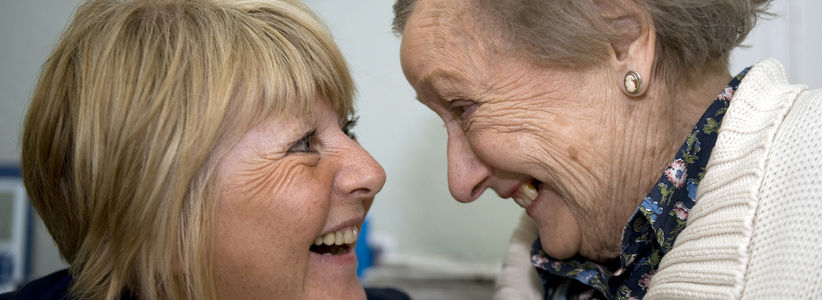Groundbreaking Parkinson’s treatment features on BBC News thanks to Scottish study efforts

A study involving the NHS Research Scotland Neuroprogressive and Dementia Network (NRS NDN) and Dundee University has commanded UK headlines after the team involved helped to make the first new Parkinson’s treatment in years available through NHS Scotland
The NHS Tayside study focused on Produodopa’s ability to help people living with Parkinson’s – of which there are around 12,400 people in Scotland – and who experience movement-related symptoms.
The results of the researchers’ efforts were recently championed on the BBC Breakfast news programme.
Produodopa has now been approved by the Scottish Medicines Consortium (SMC) for use across the NHS to treat advanced cases “when available combinations of Parkinson medicinal products have not given satisfactory results” after being taken orally.
James Jopling, Scotland director of Parkinson’s UK, called Produodopa “an important advance because it can be used safely in people who aren’t suitable candidates for brain or abdominal surgery” and could give them an “improved quality of life”, albeit it is not suitable for everyone.
The treatment is administered via a small pump delivering a steady dose of medication via a tube through the skin 24 hours a day. This can prevent sudden, extreme changes in symptoms which can make life challenging for some.
It also allows people to give themselves an additional dose if required, giving them greater personal control over their condition.
Marc Van Grieken, from Comrie in Perthshire, was diagnosed with Parkinson’s in 2006 and has been taking part in a clinical trial of Produodopa since 2019.
He continues to work full-time and has raised over £100,000 for Parkinson’s research, helping to support the University of Dundee’s Medical Research Centre Protein Phosphorylation and Ubiquitylation Unit (MRC-PPU).
Speaking to BBC presenters Naga Munchetty and Charlie Stayt, he explained the life-changing effects of the Produodopa trial: “What has changed has been transformation for me. Before I went on the drug, I could be very unsteady.
“I was very insecure; I wouldn’t travel on my own much anymore. I was very worried about things.
“Following the start of the trial, and as part of taking the Produodopa, my life transformed. I felt more confident, my voice came back which had been very weak, and I was able, and had confidence, to travel on my own, and importantly keep my business going and growing.
“So, it’s been a real transformation in terms of my ability to do things to contribute to normal life and take part in normal life.”
Explaining the difference which the treatment had made to his life, Marc said: “One of the most poignant experiences I had was trying to travel home from Edinburgh one night and I was on the platform in Haymarket Station and was so-called ‘freezing’.
“I was ‘frozen’, which means you can’t get moving and I literally had to scream to people around me, ‘Can you help me on this train?’ because once you’re moving, you’re moving, but setting the movement in motion can be very difficult and people kind of look at you in surprise or wonder whether there’s anything wrong with you.
“Well, there is – I’ve got Parkinson’s disease, but other than that, there’s nothing wrong with me, so you feel very embarrassed, and you feel very insecure.
“The first day I had been on this drug, I fell asleep for more than five hours without waking up, and that had not happened for at least two or three years.”
NRS NDN tweeted: “Well done Marc. We are delighted our study has made the news!”
Paying tribute to those who helped to make the study happen, Marc said: “Taking part in the Produodopa clinical trial with Dr Esther Sammler and the Neuroprogressive and Dementia Network (NDN) team has been a wonderful experience for me and changed my life.
“I am very pleased to have been able contribute to the further development and use of this exciting new Parkinson's treatment. I am especially pleased that I could do so in Dundee where I was supported by the wonderful Tiffany Stewart and Justine Hudson of the NHS team. They looked after me both during, as well as in between, regular study visits which were held in the Clinical Research Centre of NHS Tayside.
“I would encourage anyone who is interested in hearing more about the current Parkinson's research being carried out in Dundee to get in touch with the Neuroprogressive and Dementia Research Network or sign up to their Permission to Contact register.”
Esther Sammler MD PhD, Consultant Neurologist at NHS Tayside said: "As one of the principal investigators for clinical trials that supported the evidence to launch Produodopa as a novel treatment option for Parkinson's disease, I have first-hand experience of the great benefits that 24-hour infusion can have on the lives of people with the condition.
"In Tayside, our local NHS Parkinson's disease team, with clinical trials support from the Neuroprogressive and Dementia Network at Ninewells Hospital in Dundee, are now excited to bring Produodopa to our patients. We are working hard to set up the service.
"Nevertheless, it has to be stressed that patient selection will be key to maximising the chances of treatment success as not every person with Parkinson's disease will benefit or be eligible for Produodopa. The local Parkinson's team is the best first point of contact for individual queries."
Publication date: 23rd August 2024

